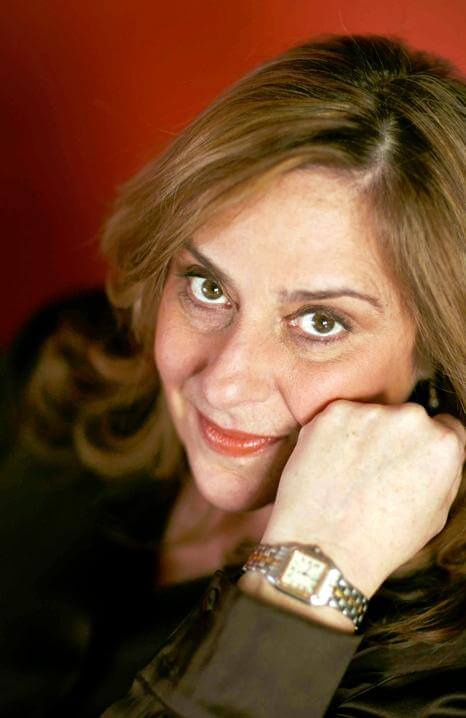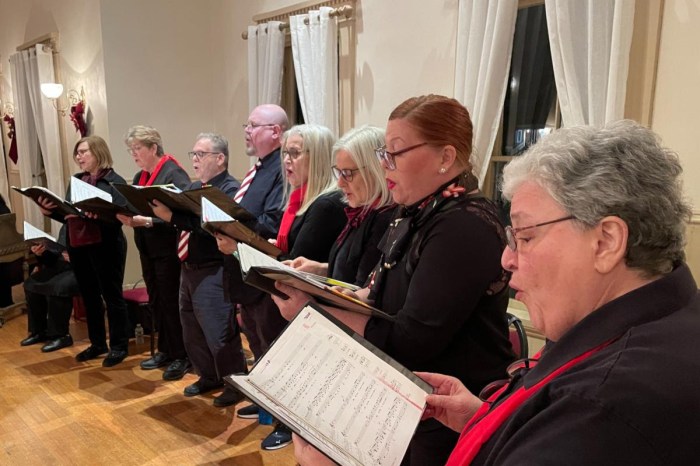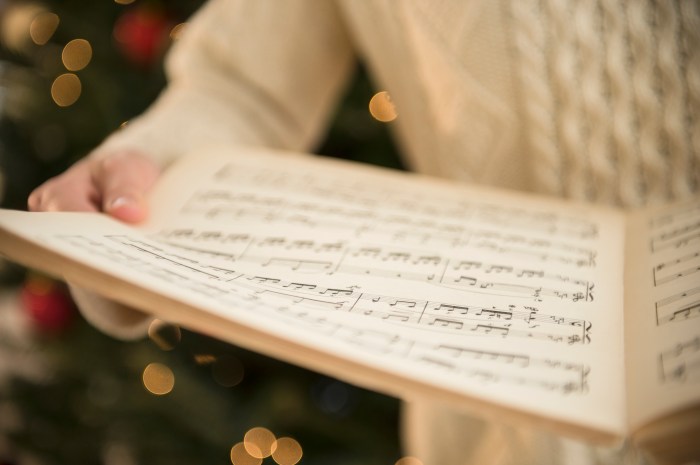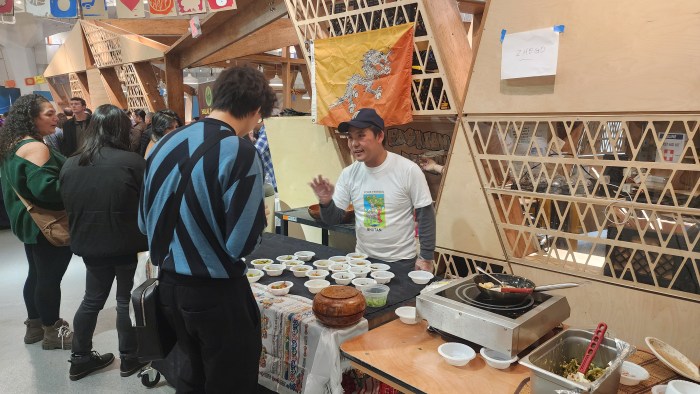By Ian MacFarland
When the defining moment arrives and the journey begins, carrying them across the arid borderlands and hemisphere-spanning oceans to their foreign new home, immigrants to America are forced to leave much behind. Even if they settle in a teeming enclave in Queens with others who share their motherland, their culture is gradually eroded as the incessant waves of American life wash across the shores of their former selves.
But the collective memory of our nation’s new arrivals has ways of preserving itself. One of today’s most celebrated, according to chef and food writer Molly O’Neill, is cuisine.
“People use cooking to connect with what they left behind,” said O’Neill, a former New York Times Magazine columnist and author of the forthcoming cookbook-cum-oral-history “One Big Table: A Portrait of American Cooking,” due Nov. 16 from Simon and Schuster.
The book, which contains 600 recipes culled from 20,000 contributions, is the culmination of a coast-to-coast expansion on her 1992 effort, “The New York Cookbook,” in which she scoured the five boroughs for home cooks’ treasured recipes and the stories behind them.
“I practically lived in Queens,” the longtime New Yorker said, reminiscing about her days seeking out pockets of ethnic settlers across the Big Apple. “It’s the epicenter. You’re in the coolest place in New York.”
A native of Columbus, Ohio, O’Neill knew she wanted to continue her efforts in cities and towns throughout the nation, and partnered with hunger-relief charity Feeding America on a 10-year effort to connect with serious home cooks by organizing a network of potluck dinners and charity events in various cities.
“It was hard not to compare everything to what I found in New York,” she said. “We’re such a polyglot and it’s so exciting.” But she found astonishing amounts of pride and diversity in out-of-the-way places in America’s heartland. “There is far more multiculturalism than when I grew up there,” she said, noting that the operative metaphor out there is more salad bowl than melting pot — diverse cultures come together but remain distinct from one another.
But among her wanderings was a trip down the No. 7 line to a place much closer to home: Jackson Heights, where she visited the home of Cong Jingming Sun, a Chinese immigrant who arrived in the borough nearly 60 years ago.
“She’s wonderful,” O’Neill said. “She has an extraordinarily perfect New York story.”
Mrs. Sun, as O’Neill calls her in the book, is the very sophisticated great-aunt of a chic, Americanized Asian man she collected a recipe from. “He was all about being David Chang,” she said, referring to the superstar chef of Momofuku fame. “She was all about cooking to her history.”
Mrs. Sun keeps a relatively traditional home, O’Neill said, giving her children and grandchildren a place where they could reconnect with their roots as they made their way in the wider new world. The recipe of hers that O’Neill chose, dubbed Mrs. Sun’s Braised New Year’s Sea Bass, is “a museum piece,” she said — one of the few favorite dishes that Mrs. Sun has kept unchanged from what was handed down to her in China.
“I didn’t keep much from Liaoning Province,” Mrs. Sun tells O’Neill in the book. “I didn’t want to. But I was careful with the things that I kept. I kept my grandmother’s braised New Year’s fish. If I hadn’t left Liaoning Province, maybe it wouldn’t be important… But far away makes details matter more.”
The recipe calls for a whole 2-pound sea bass to be stuffed with fatty Chinese ham or bacon, then browned and braised in a wok with soy sauce, Chinese cooking wine and spices such as ginger, garlic and star anise. The New Year’s feast is a massive banquet, O’Neill explained, and this dish would be but one of 15 or 20 courses served.
“Each ingredient is deeply symbolic,” she said, noting that the fish dish traditionally represents prosperity, good luck and best wishes. “This one is kind of the piece de resistance because it’s generally the whole fish. The cooks are fanatic about getting the freshest one, the right one, the perfect size.”
In advance of the book’s release, O’Neill helped organize a celebratory feast with the National Parks of New York Harbor Conservancy at Ellis Island Nov. 4, featuring food prepared by Danny Meyer’s catering service from a slew of recipes collected from around the country for inclusion in “One Big Table.” A $130 ticket to the event includes a ferry trip to Ellis Island, a panel discussion with O’Neill and other food luminaries, readings and an advance copy of “One Big Table” as well as dinner. Call 212-668-2321 for tickets and information.



































